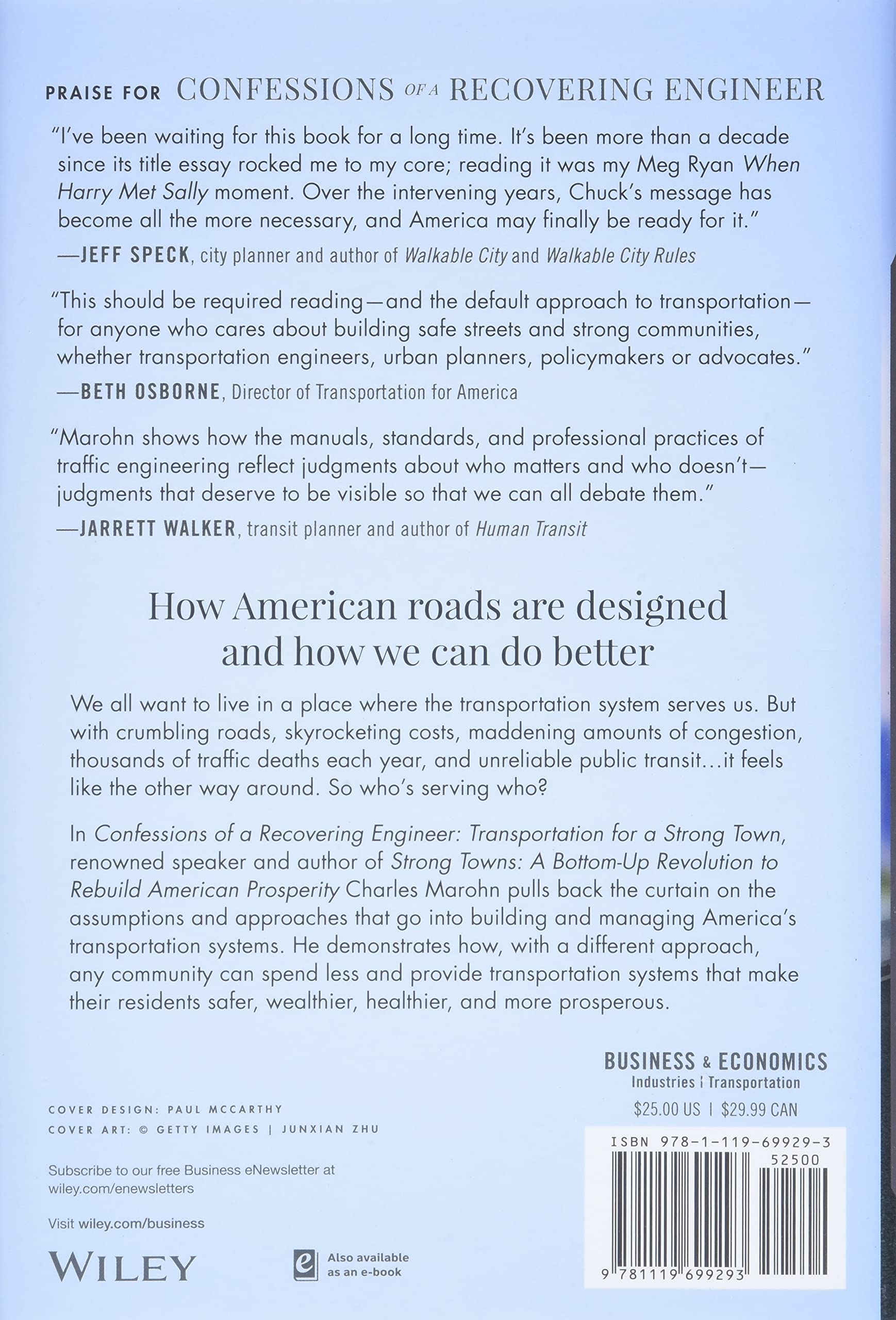Servicios al cliente
Sobre nosotros
Copyright © 2024 Desertcart Holdings Limited





Confessions of a Recovering Engineer: Transportation for a Strong Town
W**R
A very useful read
This book is more than just a good book for “built environment” or transportation nerds. If that is you - go for it!.More important this book serves those of us that have, and will continue, to actively advocate through our local municipalities for safer streets..This book teaches you how to spot the tactical arguments that are commonly used. Tactical in the sense that are based on a strategy to deflect and control the conversation. The arguments are not used to exchange actual knowledge to further the dialog. Knowing the common structure of these tactics makes them easier to spot..This book will help to recognize the false alternatives of “if we don’t do A then the result will be B”. Those are — most often —- false alternatives..Most important, this book gives us a better vocabulary when advocating (and sometimes arguing) with our local City Council or the city staff. How we speak about these things can create credibility. Maybe not as much credibility as the internal engineer that is gifted with much by default (whether earned or not), but enough credibility that those in power will slow down long enough to at least hear you.All around I enjoyed the reading.
S**D
Great Read
As a former engineering consultant and present public official, this book has been a good read. It provides an insider view of how one grapples with the conflict between design principles and real world pragmatic needs. I’ll definitely continue to go back to it for reference as I progress in my career.
J**R
He identifies some root causes for the mediocrity of our road system and standards
I think that his main point can be summarized as having roadways for accessing homes and businesses, and roadways for getting somewhere, not blurring the two into a mess. But another key point is that our road "standards", although notionally about quality, promote some characteristics over other equally important ones, and taking those choices away from elected officials and the people. I don't agree with 100% he's advocating, and he gets repetitive on occasion, but it's a very worthwhile book.
T**Z
Straightforward, innovative
"Confessions of a Recovering Engineer" is a refreshingly honest and insightful book on the way our roads are planned. The author's willingness to share his personal experience as an engineer makes for a relatable and engaging read for me. I appreciated the novel approach the author proposed to the problems of our transportation system. The writing style is also simple and easy to follow, making this book an enjoyable read for anyone, not just professionals.
M**N
an interesting vision
This book critiques American traffic engineering. American engineers often design ordinary commercial streets to carry traffic speeds almost as high as those of an interstate highway. Marohn calls this kind of high-speed street a stroad: like a traditional city street, it is designed to create economic value by including businesses and homes, but like a road, it connects towns with high-speed traffic.Marohn's key insight is that because a stroad contains elements of both a street and a road, it doesn't perform the function of either very well. The stroad functions poorly as a street because its speed limits often are 30 mph or above, and it is designed to support even faster speeds. These high speeds make the stroad unsafe to cross on foot, and also ensure that vehicle-on-vehicle crashes create a significant risk of bodily injury or death.Defenders of the status quo might argue that even if the stroad is dangerous for walkers, it works as a road, because it helps drivers go where they need to go rapidly. But Marohn argues that the stroad fails as a road too. Why? To mitigate the risk caused by stroads, traffic engineers fill them with traffic lights and crosswalks, causing traffic to grind to a halt every few minutes. Marohn suggests that if stroads were replaced with streets designed for 10 mph traffic, drivers would actually reach their destinations more rapidly. Why? Because there would be no need for traffic lights; for every minute drivers lost due to slower speed, they would gain a minute by stopping less frequently.
Trustpilot
Hace 2 semanas
Hace 1 semana